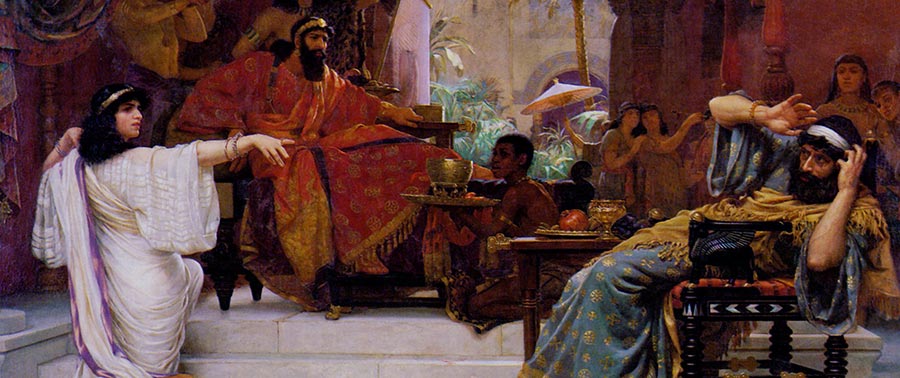It’s impossible to remove all bias from a Bible translation, but some bias by past translators is easily to spot and remove. Here are some examples of bias we have not allowed in our translation.
This page is unfinished and is still being prepared. Last updated July 2022.
Bias against women
No, women are not meant to keep silent in the congregation.
No, women are not saved through child-bearing.
Yes, women were servants (or deacons) in the churches.
Yes, there was a female missionary called Junia. Some denominations refuse to accept that there was a female missionary, or apostle, named Junia. So some Bibles put a man’s name, Junias (that did not exist at the time) at Romans 16:7 instead of Junia. However, the Aramaic text records the phonetic pronunciation of the name as Junia, and all historical records report that Junia was indeed female.
Bias in favor of fasting
There are numerous spurious additions to the Christian books about fasting. We have tried to identify them and cross them out. See the spurious texts page for more information.
Bias in support of certain doctrines
We have corrected many things that other Bibles deliberately mistranslated (or translate in a certain way) to support a specific doctrine or Church dogma.
For example, certain words were fraudulently inserted into the Bible to support the trinity doctrine. We crossed them out. They are at Matthew 28:19 (probably inserted in the 4th century CE) and 1 John 5:7-8 (inserted in the 14th or 15th century CE). Most Bibles have removed what appears in 1 John, but the spurious words in Matthew are still in most translations.
Further, John 1:1 is deliberately mistranslated by nearly all Bibles to deceptively hide the fact that both references to ‘God’ are, in fact, presented differently in the Greek source. So most translations say something like the Word was with God and the Word was God, falsely making it look like the two uses of God are identical, when they are not.
It is completely inappropriate for a translator to deliberately hide something from readers because it doesn’t align with the doctrines of their Church. This is outright bias, dishonest, and deceptive.
Bias towards certain interpretations of Jesus’ second coming
...
Bias towards God’s Kingdom being the physical Church on earth
...
Bias towards Greek philosophy
...
Bias in support of eternal punishment in hellfire
...
Bias against the Divine Name
Most English Bibles continue the Jewish tradition which began in the 6th century BCE of replacing the Divine Name of Almighty God (Jehovah/Yahweh) with the euphemism Lord. While there is nothing wrong with following a tradition if it doesn’t go against God’s laws (which only prohibit using God’s name disrespectfully), Bible translators have largely failed to convey the facts to their readers. What began centuries ago as a tradition of showing respect to the Divine Name, has now descended into outright censorship.
Most Bible readers have no idea when they’re reading a euphemism for the Divine Name. Some Christians don’t even know that Almighty God has his own personal Name!
This is really shameful, especially as God Himself said:
‘Jehovah [or Yahweh] – that has been My Name throughout the ages, and it’s how I shall be remembered from generation to generation.’ —Exodus 3:15
Bias against the Greek Septuagint
...
Bias against the Aramaic texts (and bias towards the Greek)
...
Bias against modern speech, punctuation, and formatting
Most Bible translations use very formal language, and many feel that this is right and proper for such a serious work. However, was the Bible originally written in a stuffy, overly formal way, with archaic words or expressions that had long since fallen out of use? Well, the Bible contains lots of quotes from ordinary, uneducated people; so how would they have spoken? Would they not have just spoke in an ordinary, everyday manner?
Most english Bibles use archaic words and expressions that nobody has used in normal speech for centuries. For Behold! The words which thine other Bible translations doth contain, are english words that thou have only ever seen appear in thy Bible. For their appearance hath not been made manifest anywhere else!
So we aim to use ordinary modern english, and we’re trying to rewrite overly wordy expressions with simpler ones, and to replace archaic words with common ones.
We also use contractions (isn’t, they’re, it’s, won’t, and so on) because that’s how we normally speak – don’t we?
Other Bibles also fail to use modern punctuation and formatting.
For example, we normally write long lists with bullet points; we don’t just write a big ‘wall of text’ that’s both ugly and intimidating. So in our translation, most lists are turned into long bulleted lists which are much, much easier to read and far less intimidating for readers. For example, see how we’ve formatted the ‘Table of Nations’ in Genesis 10, and then take a look at how it appears in another translation.
We also use indentations, italics, bold, line-returns, multiple new paragraphs, short gaps and bigger gaps, and all sorts of things to make the text more modern-looking and (most importantly) significantly easier to read.
Part of the reason other Bibles don’t use modern formatting is to save space and paper upon printing, so they try to pack in as much text as possible into a small space. That’s understandable. However, our Bible is online, and we can use as much space as we want.
